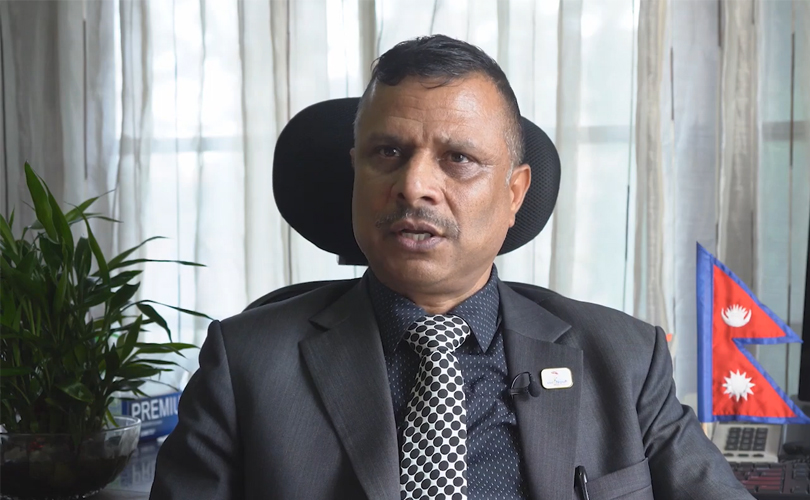KATHMANDU: Purushottam Khanal, Chairman of the Nepal Telecommunication Authority (NTA), has tendered his resignation, revealing that relentless political pressure from Prime Minister Pushpakamal Dahal and Minister of Communication and Information Technology, Rekha Sharma, compelled him to step down.
This development unfolds with seven months still remaining in Khanal’s five-year term, raising concerns about the stability of Nepal’s telecom sector.
Khanal officially communicated his decision to resign to the Ministry of Communication and Information Technology on Tuesday, stating, “I have submitted my resignation to the line ministry. Now I am free from political pressure,” Khanal told Fiscal Nepal. This move comes after enduring prolonged and persistent pressures throughout his tenure.
Sources close to the matter cite the continuous pressure from Prime Minister Dahal and Minister Sharma as the primary reason for Khanal’s resignation, creating an environment that made it untenable for him to continue in the position. The NTA Chairman’s departure brings to light the challenges posed by political interference in regulatory bodies.
Purushottam Khanal assumed the role of Chairman of the NTA for a five-year term, following his appointment during a Cabinet meeting led by then Prime Minister K.P. Oli on July 22, 2019.
Despite the significant period left in his tenure, Khanal’s resignation stems from disputes surrounding controversial projects, including Teramoks and MDMES, along with the ongoing controversy over the purchase and sale of disputed shares of Ncell.
The parliamentary committee assigned to investigate these matters has treated the issues with the utmost seriousness, further highlighting the complexity of challenges faced by regulatory bodies. Khanal’s departure raises concerns about the potential impact on the telecom sector’s stability, as his leadership and expertise played a crucial role in navigating regulatory issues.
As news of the resignation circulates, stakeholders within the telecom industry are closely monitoring developments, anticipating potential shifts in regulatory strategies and policies. The NTA, being a key regulatory body, plays a pivotal role in shaping the telecom landscape, making the selection of a new chairman of paramount importance for ensuring continuity and stability in the sector.
The circumstances leading to Khanal’s resignation also underscore the need for safeguarding regulatory bodies from undue political interference, ensuring that they can function independently to address challenges and foster a conducive environment for the growth of the telecom sector in Nepal.
The upcoming period will likely witness discussions and deliberations on the appointment of a new NTA chairman, with stakeholders eager to see the direction the regulatory landscape takes in the wake of these developments.

